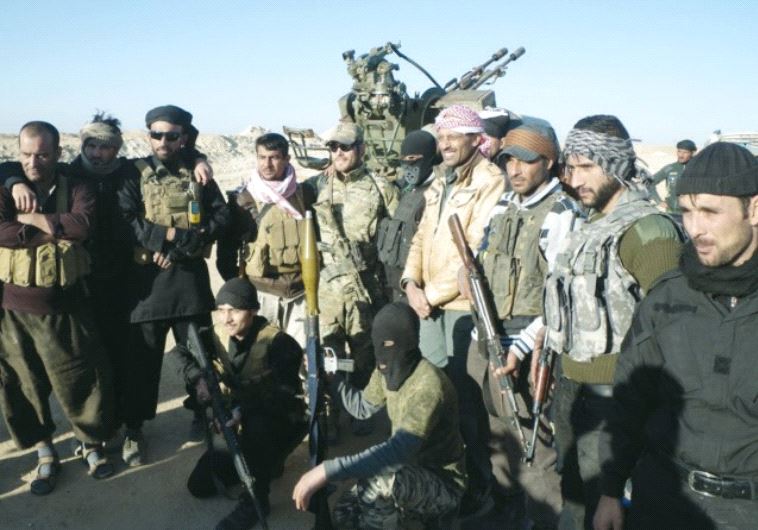Exclusive: The Sunni tribe that survived a two-year Islamic State siege in Iraq
When ISIS demanded al-Jughayfa’s surrender, the sheikh replied: "We’ll fight to the death."
 AL-JUGHAYA tribal members pause for a group photo while fighting ISIS under siege.
AL-JUGHAYA tribal members pause for a group photo while fighting ISIS under siege.